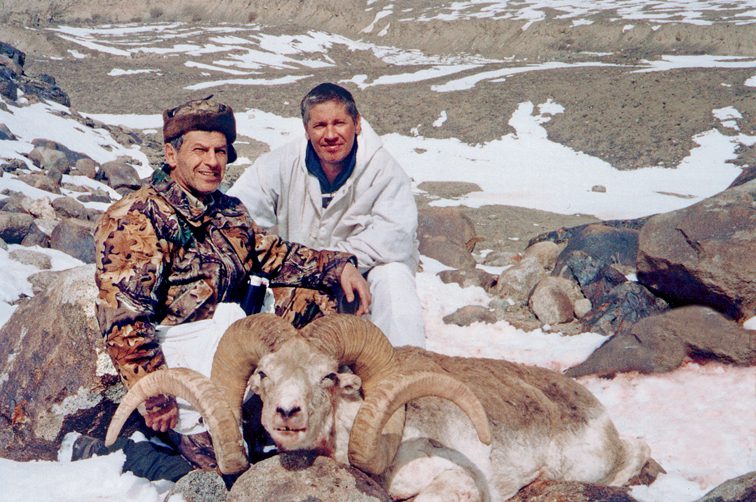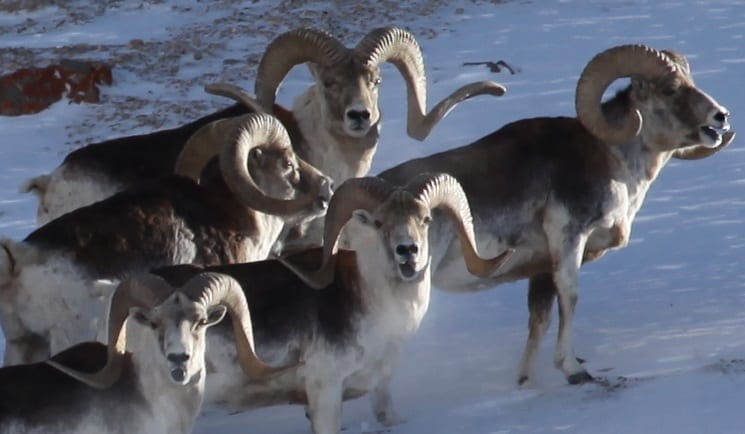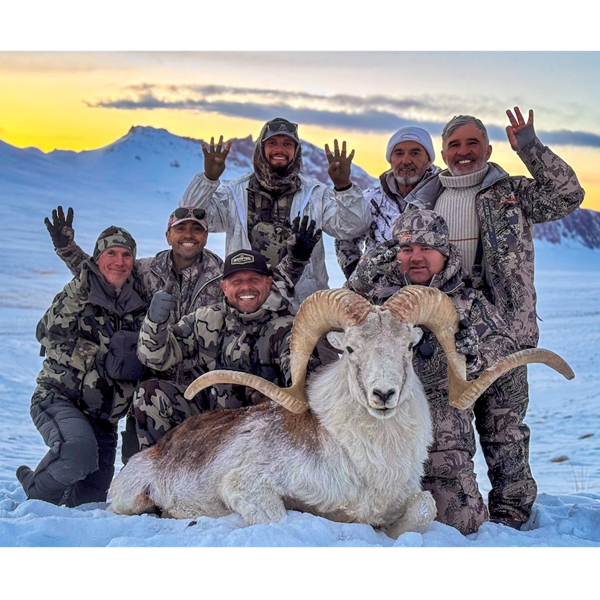The Marco Polo Sheep is one of the most iconic and majestic species of wild sheep in Asia. Known for its impressive spiral horns and extraordinary agility in rugged mountainous terrain, the Marco Polo Sheep has been a sought-after target for trophy hunters and wildlife enthusiasts alike. But there is more to this magnificent animal than just its appearance.
In this article, we will explore the fascinating world of the Marco Polo Sheep, from its unique characteristics to the groundbreaking developments in Marco Polo sheep cloning Montana and hybridization efforts.
What is a Marco Polo Sheep?

The Marco Polo Sheep, also known as the Marco Polo Argali Sheep, is native to the mountainous regions of Central Asia, specifically in places like Tajikistan, Kyrgyzstan, and parts of China. This large wild sheep is easily recognized by its massive, curved horns, which can measure up to 60 inches, making them one of the largest horns of any wild sheep species.
The Marco Polo Ram can weigh up to 300 pounds, and its thick, woolly coat helps it survive the harsh cold of high altitudes.
Marco Polo Sheep: An Icon of Wild Sheep in Asia
The Marco Polo Sheep is a symbol of the wild sheep population in Asia. Its habitat consists of remote, rugged mountains that are difficult to access, making it a rare sight. These sheep are highly adapted to life in the steep, rocky cliffs, where they can navigate with ease, thanks to their powerful legs and hooves.
With populations scattered across several countries, the Marco Polo Sheep faces threats from habitat loss and poaching. However, conservation efforts are ongoing to protect this iconic species and ensure its future.
Marco Polo Sheep Cloning Montana: A New Frontier
In an interesting twist, researchers have turned to cloning in a bid to conserve the Marco Polo Sheep population. Marco Polo sheep cloning Montana has gained attention due to its innovative approach in preserving the gene pool of these magnificent creatures.
Scientists are experimenting with cloning techniques to replicate the genetics of the Marco Polo Sheep in Montana, where they can be studied and potentially reintroduced into their natural habitats. This breakthrough could revolutionize the way we think about wildlife conservation, particularly for endangered species like the Marco Polo Sheep.
The Fascination with Marco Polo Sheep Hybrid

One of the more controversial developments in recent years is the creation of Marco Polo Sheep hybrids. These hybrids are the result of crossbreeding Marco Polo Sheep with other species of wild sheep, like the Marco Polo Argali. The goal is often to combine the best traits of both species, including strength, resilience, and horn size.
While some argue that hybridization could lead to stronger, more adaptable sheep, others worry it may dilute the genetic integrity of the Marco Polo Sheep and impact its population in the wild. Nonetheless, the Marco Polo Sheep hybrid represents an interesting intersection of genetics and conservation, opening the door to new possibilities for the species.
World Record Marco Polo Sheep: The Pursuit of the Ultimate Trophy

The world record Marco Polo Sheep is a coveted prize for hunters. These sheep’s enormous horns and impressive size make them a favorite among trophy hunters looking to display their ultimate prize. Records show that the largest Marco Polo Sheep ram ever harvested had horns measuring a staggering 79 inches, setting a benchmark for future hunters.
However, hunting these magnificent animals is heavily regulated to ensure that only a limited number of licenses are issued each year. Sustainable hunting practices and strict regulations help protect the species while allowing enthusiasts to pursue their passion responsibly.
Marco Polo Sheep Hunt: A Once-in-a-Lifetime Adventure
A Marco Polo Sheep hunt is often considered a bucket-list experience for hunters. The hunt typically takes place in the challenging mountainous terrain of Central Asia, where hunters must navigate difficult landscapes and contend with extreme weather conditions.
The Marco Polo Sheep hunt is not for the faint of heart. It requires skill, patience, and a deep understanding of the sheep’s behavior. Hunters must be prepared for long, arduous treks in high altitudes, sometimes lasting for days or even weeks.
For those lucky enough to secure a permit, the experience of hunting a Marco Polo Ram can be a once-in-a-lifetime adventure that combines the thrill of the chase with the beauty of the wild landscapes.
Montana Super Sheep: The Rise of the Marco Polo Sheep in the USA
In recent years, Montana Super Sheep has become a buzzword in the hunting and wildlife conservation community. Montana’s mountainous landscapes provide an ideal environment for the Marco Polo Sheep, and efforts are underway to introduce and reintroduce these wild sheep species into North America.
The Marco Polo Sheep hybrid program in Montana has gained traction as a way to build stronger populations of these sheep, ensuring their survival and integrating them into new ecosystems. With its natural beauty and diverse wildlife, Montana is positioning itself as a prime location for Marco Polo Sheep hunts and conservation efforts.
Conclusion: Preserving the Legacy of the Marco Polo Sheep
The Marco Polo Sheep represents more than just a trophy; it embodies the beauty and wildness of Asia’s rugged landscapes. From their impressive horns to their incredible resilience, these animals are an integral part of the ecosystem and an important symbol of wildlife conservation.
With ongoing developments in Marco Polo sheep cloning Montana, hybridization efforts, and sustainable hunting practices, there is hope for the future of the Marco Polo Sheep. As we continue to learn more about these remarkable creatures, it is our responsibility to ensure their survival for generations to come.
Whether you’re a wildlife enthusiast, conservationist, or trophy hunter, the Marco Polo Sheep offers an unparalleled experience—one that blends the thrill of the chase with the appreciation of a species on the brink of conservation breakthrough.
Frequently Asked Questions (Marco Polo Sheep)
What is a Marco Polo Sheep?
The Marco Polo Sheep, also known as the Marco Polo Argali Sheep, is a wild sheep species native to Central Asia, recognized for its massive spiral horns and rugged mountain habitat.
Where can I find Marco Polo Sheep?
You can find Marco Polo Sheep in mountainous regions of Tajikistan, Kyrgyzstan, and parts of China. They are typically located at high altitudes, making them rare and difficult to spot.
How are Marco Polo Sheep cloned in Montana?
Marco Polo sheep cloning in Montana is an experimental conservation method aimed at preserving the genetic diversity of the species. Cloning attempts focus on replicating the sheep’s genes to protect future populations.
What is the World Record Marco Polo Sheep?
The world record Marco Polo Sheep boasts an impressive horn length of up to 79 inches. It’s considered one of the largest rams ever recorded, making it a prized trophy for hunters.
Are there Marco Polo Sheep hybrids?
Yes, Marco Polo Sheep hybrids are bred by crossbreeding the Marco Polo Sheep with other wild sheep species, like the Marco Polo Argali. These hybrids aim to combine the best traits of both species.
What makes the Marco Polo Sheep Hunt so special?
The Marco Polo Sheep hunt is a coveted adventure for hunters due to the sheep’s rarity and the challenging terrain in which they live. It’s a once-in-a-lifetime experience for those lucky enough to secure a permit.
Why are Marco Polo Sheep important for conservation?
The Marco Polo Sheep is an important species for conservation due to its role in maintaining the biodiversity of the rugged mountain ecosystems of Asia. Conservation efforts, including cloning, aim to protect these majestic creatures.
Can I hunt Marco Polo Sheep in the USA?
While Marco Polo Sheep are native to Asia, there are efforts to introduce them to locations like Montana. Montana Super Sheep programs are underway to create new populations in the U.S. for hunting and conservation purposes.
